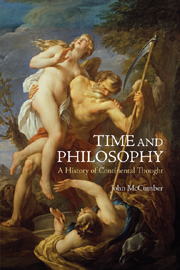Book contents
- Frontmatter
- Contents
- Acknowledgements
- Abbreviations and note on texts
- Introduction
- I Germany, 1790–1890
- II Germany and America, 1900–1968
- 6 The return of traditional philosophy: Edmund Husserl
- 7 The finite future: Martin Heidegger
- 8 Activity and mortality: Hannah Arendt
- 9 The twilight of Enlightenment: Theodor W. Adorno and Max Horkheimer
- III France, 1945–2004
- IV Onwards, 2011–
- Further reading
- Bibliography
- Index
9 - The twilight of Enlightenment: Theodor W. Adorno and Max Horkheimer
from II - Germany and America, 1900–1968
- Frontmatter
- Contents
- Acknowledgements
- Abbreviations and note on texts
- Introduction
- I Germany, 1790–1890
- II Germany and America, 1900–1968
- 6 The return of traditional philosophy: Edmund Husserl
- 7 The finite future: Martin Heidegger
- 8 Activity and mortality: Hannah Arendt
- 9 The twilight of Enlightenment: Theodor W. Adorno and Max Horkheimer
- III France, 1945–2004
- IV Onwards, 2011–
- Further reading
- Bibliography
- Index
Summary
On 22 July 1969 an old man walked out of a courtroom in Frankfurt, Germany. On the way he permitted himself a condescending smile in the direction of the defendant, a radical student leader named Hans-Jürgen Krahl. Krahl was on trial for trespassing; the old man, who had brought the charges against him, was his teacher, Theodor W. Adorno. The preceding February, Krahl had led a student occupation of Adorno's beloved Institute for Social Research; this was his trespass. His ensuing trial was the culmination of growing tension between, on the one hand, Adorno himself, his associate Max Horkheimer and the other “adult” spirits of the institute, and their own students on the other. The students claimed merely to be carrying into action the Marxist ideas and theories of the Frankfurt School. In their eyes, their elders – in particular, Horkheimer and Adorno – had ceased to be real Marxists long before. For true Marxism, the students argued, could not be merely a matter of theory. Was it not Marx himself who had written, in the “Theses on Feuerbach”, that “the philosophers have only interpreted the world in various ways; the point is to change it?” (Marx 1994b: 101).
Furthermore, Horkheimer and Adorno were too pro-American. To a degree this was understandable. The United States had not only given them personal refuge during the Nazi years but it had also ferociously fought the Nazis across western Europe, and so had been a general benefactor of humanity.
- Type
- Chapter
- Information
- Time and PhilosophyA History of Continental Thought, pp. 225 - 250Publisher: Acumen PublishingPrint publication year: 2011
- 2
- Cited by



